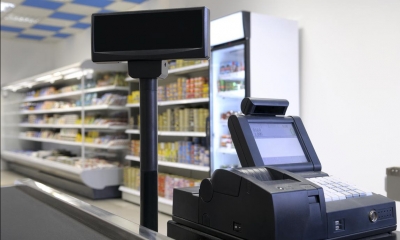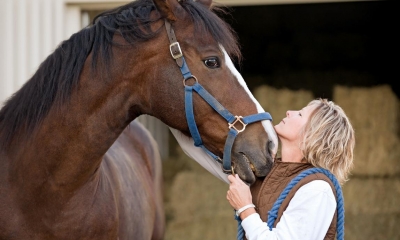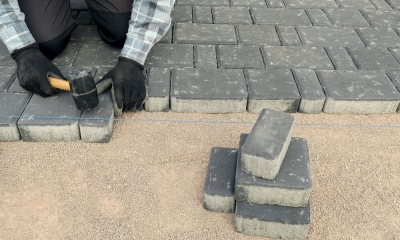
What licences does a convenience store need?
Because your business will store, sell, and possibly prepare food you will need to register with your local environmental health department. They will inspect your premises and help you to comply with the requirements of the Food Safety Act. You should contact your local authority early on in your planning so that you register in good time. There is no charge for registering.
Alcohol licensing
If you want to sell alcohol, you'll need an alcohol premises licence. The application procedure and regulations vary across the UK.
In England and Wales, the Licensing Act regulates the sale of alcohol. A premises licence is required for any premises where this will take place, and a personal licence is required by anyone who wants to sell alcohol from premises which have a premises licence. Anyone applying for a personal licence must have gained an accredited qualification. You can apply to your local authority for these licences. The GOV.UK website contains more information.
In Northern Ireland, alcohol licences are granted by the county court. There is a set number of off-licences in Northern Ireland so you'll usually need to find someone who's giving up or selling their licence. You can read more about alcohol licensing in Northern Ireland on the NI Direct website.
In Scotland, alcohol licences are granted by local Licensing Boards which grant personal and premises licences. Anyone selling alcohol must have training as specified by licensing legislation. You can read more about alcohol licensing in Scotland on the Scottish Government website.
When you apply for an alcohol licence, the granting authority will look very carefully at the application, taking into account whether the applicant and the premises are suitable for selling alcohol. It may be worth using the services of a specialist licensing professional to handle the application - although this will cost you in fees it can speed up the process and help to ensure that the application succeeds.
Tobacco retailing
The government has announced that it plans to prevent anyone born on or after 1 January 2009 from buying cigarettes in this parliament.
Retailers in Scotland must be entered on the Scottish Tobacco Retailers Register. You can register online on the Scottish Tobacco Retailers Register website. A similar requirement applies in Northern Ireland, where registration is with Belfast City Council.
All retailers selling tobacco products need to get an Economic Operator Identifier Code and a Facility Identifier Code.
Selling fireworks
You must not sell fireworks to anyone aged under the age of 18. If you plan to sell fireworks you must register with your local trading standards department or fire authority (depending on your location) in Great Britain or with the Department of Justice in Northern Ireland. You can only sell fireworks without a licence in Great Britain at certain times of year (15 October to 10 November, 26 December to 31 December, first day of Chinese New Year and three days before, first day of Divali and three days before). You'll need a fireworks sales licence to sell fireworks outside of these dates. You can find out more about firework licensing in the UK on the RoSPA website.
The Association of Convenience Stores has produced a guide on selling fireworks.
Other matters
If you plan to play background music in the store you will need to obtain a Music Licence from PPL PRS Ltd. There is an annual fee for the licence.
You must register with your local authority if you plan to employ young people for a newspaper round.
Cigarettes and tobacco products
You must not sell tobacco and nicotine products - including cigarette papers - to young people under the age of 18. You must also make sure that all tobacco products you sell carry a UK duty paid fiscal mark and the required health warnings. Regulations prohibit tobacco displays and point-of-sale advertising in the shop. All tobacco products manufactured for sale in the UK must have standardised plain packaging. All retailers selling tobacco products need to get an Economic Operator Identifier Code and a Facility Identifier Code. You can get more information on tobacco legislation from your local trading standards department.
Note that lighter refills containing butane gas are also age-restricted - the minimum age is 18. Other substances that may be used as lighter fluids must not be sold to under-18s if it is thought that they may be used as intoxicants.
Customers - age-related sales
You must not:
- sell tobacco products (including e-cigarettes) to young people under 18
- keep fireworks for sale in Great Britain unless you're licensed for year-round sale of fireworks or you've registered your premises for time restricted firework sales with the local trading standards department or fire authority. In Northern Ireland you need to register with the Department of Justice
- sell fireworks to young people under 18 (except items like party poppers, where the age limit is 16)
- sell Christmas crackers to under 12-year olds
- sell alcohol to people under the age of 18
- sell an intoxicating substance to people under 18 if you suspect the fumes will be inhaled for intoxification
- sell cigarette lighter gas refills to people under 18
- sell Lottery tickets to young people under 16
- sell knives/blades to young people under 18
- sell/rent out DVDs and games to anyone under the age specified on an age-restricted title
You should also be aware that food goods sold loose from bulk must be priced and weighed in metric units.
Your local trading standards department will be able to help you. You can also find detailed guidance on the Trading Standards Business Companion website.
Substances that could be used to make explosives
There are special regulations in place to prevent substances that could potentially be used to make explosives getting into the wrong hands. Some substances, which would normally only be available from specialist suppliers, are regulated and can only be supplied to a member of the public who has a licence to obtain and possess them. Other substances, although not regulated, are nevertheless of potential concern. Examples of these, which are referred to as 'reportable substances', include sulphuric acid (which may be present in some strong cleaning products). Any products labelled with the 'skull and crossbones' hazard pictogram are also potentially of concern, although they are not classified as reportable under the regulations.
You must report any suspicious transactions (or disappearances due to theft) involving regulated or reportable substances to the police Anti-terrorist Hotline on 0800 789 321 or via the ACT website. A transaction could be suspicious for various reasons, for example because the customer insists on paying cash and/or wants an unusually large quantity of a product containing a reportable substance.
There's more information for businesses about regulated and reportable substances on the GOV.UK website.
Food safety
All businesses in the food sector must comply with strict food safety legislation. Before you open, you must register your business with the local authority environmental health department. Your local environmental health officer will be able to give you advice and guidance as to what you should install in your premises to make sure your operating areas are hygienic and how to comply with the requirements of the Food Safety Act. You can download the Safer food, better business for retailers pack from the Food Standards Agency website for more information.
Food waste
If your business produces food waste you must make sure that you dispose of it correctly. It mustn't contaminate the environment and it can't be fed to livestock. If you use a waste carrier to get rid of your waste you'll need to make sure they're properly authorised. You can find out more about your responsibilities on the GOV.UK website.
Waste batteries
If your business sells more than 32 kg of portable batteries in a year you must take back used batteries from customers to be recycled. You must provide this service free of charge. DEFRA has produced a calculator tool to help businesses work out whether they sell enough batteries each year to be affected by the new regulations. You can use the tool on the Waste Support website.
Clean Neighbourhoods and Environment Act
This legislation makes businesses responsible for clearing up any litter around their site that has originated from their retail activities. For example, this would include take-away food or drink packaging, waste lottery tickets or scratch cards, empty crisp or confectionery packets, ice cream and sandwich wrappers and so on.
Insurance for a convenience store
Contact an insurer or insurance broker and explain exactly how your business will operate - they will then explain what insurance cover you must have by law, and other cover you should consider. This might include:
- premises, premises contents and stock
- goods in transit (for example on the way back from a cash and carry)
- freezer breakdown
- cash and Lottery scratchcards
- business interruption
- employers liability
- public and products liability
- motor insurance (for delivery vehicles)
Members of the British Independent Retailers Association (BIRA) can benefit from tailored retail insurance packages. Visit the BIRA website for details.



